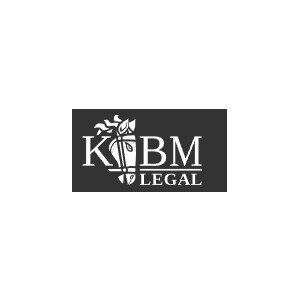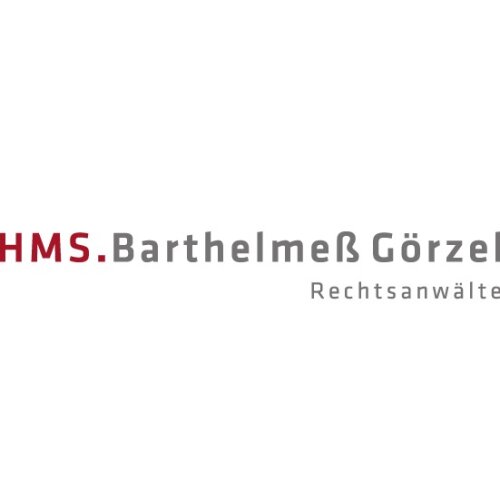Best Public-Private Partnerships (PPP) Lawyers in Cologne
Share your needs with us, get contacted by law firms.
Free. Takes 2 min.
List of the best lawyers in Cologne, Germany
About Public-Private Partnerships (PPP) Law in Cologne, Germany
Public-Private Partnerships (PPPs) are collaborative agreements between government authorities and private sector companies to plan, finance, build, and operate public infrastructure or services. In Cologne, Germany, PPPs are commonly used for projects such as transportation networks, schools, hospitals, and utilities. These arrangements aim to leverage private sector expertise and funding while ensuring that the public retains oversight and benefits from improved services or infrastructure.
The legal landscape for PPPs in Cologne is shaped by both national and local regulations. PPP projects typically involve comprehensive contracts that outline the responsibilities, risk allocation, and long-term commitments of each party involved. Navigating these complex agreements requires a thorough understanding of German contract law, public procurement rules, and sector-specific regulations applicable to the project at hand.
Why You May Need a Lawyer
Engaging in a PPP project involves intricate legal, financial, and operational challenges. Here are common situations where legal assistance is valuable:
- Understanding and complying with procurement procedures
- Drafting and negotiating PPP agreements
- Assessing and allocating risks between partners
- Resolving disputes or disagreements that arise during the partnership
- Ensuring conformity with local, state, and federal regulations
- Protecting intellectual property and confidentiality interests
- Advising on project financing, guarantees, and securities
- Managing changes to project scope or contract terms
- Terminating or restructuring PPP agreements
- Interfacing with regulatory bodies or local government entities
Local Laws Overview
In Cologne, PPP projects must adhere to a range of legal frameworks at the municipal, state (North Rhine-Westphalia), and federal levels. Key legal aspects include:
- Public Procurement: All PPPs must follow the rules set forth by the German Act against Restraints of Competition (GWB), the Ordinance on the Award of Public Contracts (VgV), and relevant EU directives. Transparency, competition, and equal treatment of bidders are mandatory.
- Contract Law: Civil and commercial contract law governs the drafting and enforcement of PPP agreements. Clear obligations, deliverables, and dispute resolution clauses are standard.
- Sectors and Special Laws: Projects in certain sectors such as energy, health care, and transportation may require compliance with additional sector-specific regulations.
- Project Financing: Financing structures must comply with German and EU law, addressing issues like risk sharing, collateral, and state aid rules.
- Municipal Law: Local government rules, especially regarding budgeting and approvals, significantly impact the structure and implementation of PPPs in Cologne.
Frequently Asked Questions
What is a Public-Private Partnership (PPP)?
A PPP is a collaboration between a government entity and a private company to finance, build, and operate projects that serve the public, such as infrastructure and services.
What types of projects in Cologne are usually done as PPPs?
Typical PPP projects in Cologne include schools, public transportation, highways, hospitals, waste management, and energy infrastructure.
What are the main legal risks in PPP agreements?
Legal risks include unclear responsibility allocation, insufficient risk assessment, non-compliance with procurement rules, and the financial stability of partners.
How are PPP contracts structured?
PPP contracts define project scope, payment structures, risk allocation, performance criteria, and legal remedies in case of disputes or breaches.
What procurement procedures must be followed for PPPs in Cologne?
German and EU procurement laws require open, competitive, and transparent tender procedures, ensuring fair access for all qualified companies.
Who approves PPP projects in Cologne?
Projects typically need approval from the Cologne city council and relevant municipal departments, sometimes supported by state or federal authorities.
What happens if a dispute arises in a PPP project?
Dispute resolution mechanisms are usually specified in the contract, often including negotiation, mediation, or litigation before German courts.
Are foreign private companies allowed to participate in PPPs in Cologne?
Yes, foreign companies can participate, provided they meet legal and qualification requirements established by German and EU law.
How long does it take to establish a PPP in Cologne?
Timeframes vary but generally involve several months of preparation, tendering, negotiation, and approval processes.
Does the city provide legal or financial advice for PPP participants?
While the city may offer general guidance, all parties should seek independent legal and financial advice to protect their interests.
Additional Resources
For further guidance on PPPs in Cologne and Germany, consider the following resources:
- City of Cologne (Stadt Köln) - Municipal authority overseeing local PPP initiatives
- North Rhine-Westphalia PPP Task Force (PPP Task Force NRW) - State body offering advice and support for PPP projects
- Federal Ministry for Digital and Transport (Bundesministerium für Digitales und Verkehr, BMDV) - Provides PPP frameworks and case studies
- PPP Competence Center (Kompetenzzentrum PPP) - German center for PPP best practices and knowledge sharing
- Chamber of Commerce and Industry Cologne (Industrie- und Handelskammer Köln) - Offers information and legal recommendations to companies
- Local law firms with expertise in PPP - Many firms in Cologne specialize in PPP law and can provide consultation
Next Steps
If you need legal assistance regarding a PPP in Cologne, consider the following actions:
- Clearly define your project goals and identify potential PPP models
- Prepare preliminary documentation, including project outlines and feasibility studies
- Consult with a specialized lawyer experienced in PPP law and public procurement in Germany
- Engage early with relevant governmental bodies to understand local approval processes and requirements
- Gather a multidisciplinary team, including legal, financial, and technical experts
- Stay informed about updates in local and national legislation affecting PPPs
- Attend local information sessions or workshops by industry bodies or chambers of commerce
Remember, engaging qualified legal counsel early minimizes risks and ensures smoother progress throughout the PPP lifecycle in Cologne.
Lawzana helps you find the best lawyers and law firms in Cologne through a curated and pre-screened list of qualified legal professionals. Our platform offers rankings and detailed profiles of attorneys and law firms, allowing you to compare based on practice areas, including Public-Private Partnerships (PPP), experience, and client feedback.
Each profile includes a description of the firm's areas of practice, client reviews, team members and partners, year of establishment, spoken languages, office locations, contact information, social media presence, and any published articles or resources. Most firms on our platform speak English and are experienced in both local and international legal matters.
Get a quote from top-rated law firms in Cologne, Germany — quickly, securely, and without unnecessary hassle.
Disclaimer:
The information provided on this page is for general informational purposes only and does not constitute legal advice. While we strive to ensure the accuracy and relevance of the content, legal information may change over time, and interpretations of the law can vary. You should always consult with a qualified legal professional for advice specific to your situation.
We disclaim all liability for actions taken or not taken based on the content of this page. If you believe any information is incorrect or outdated, please contact us, and we will review and update it where appropriate.









